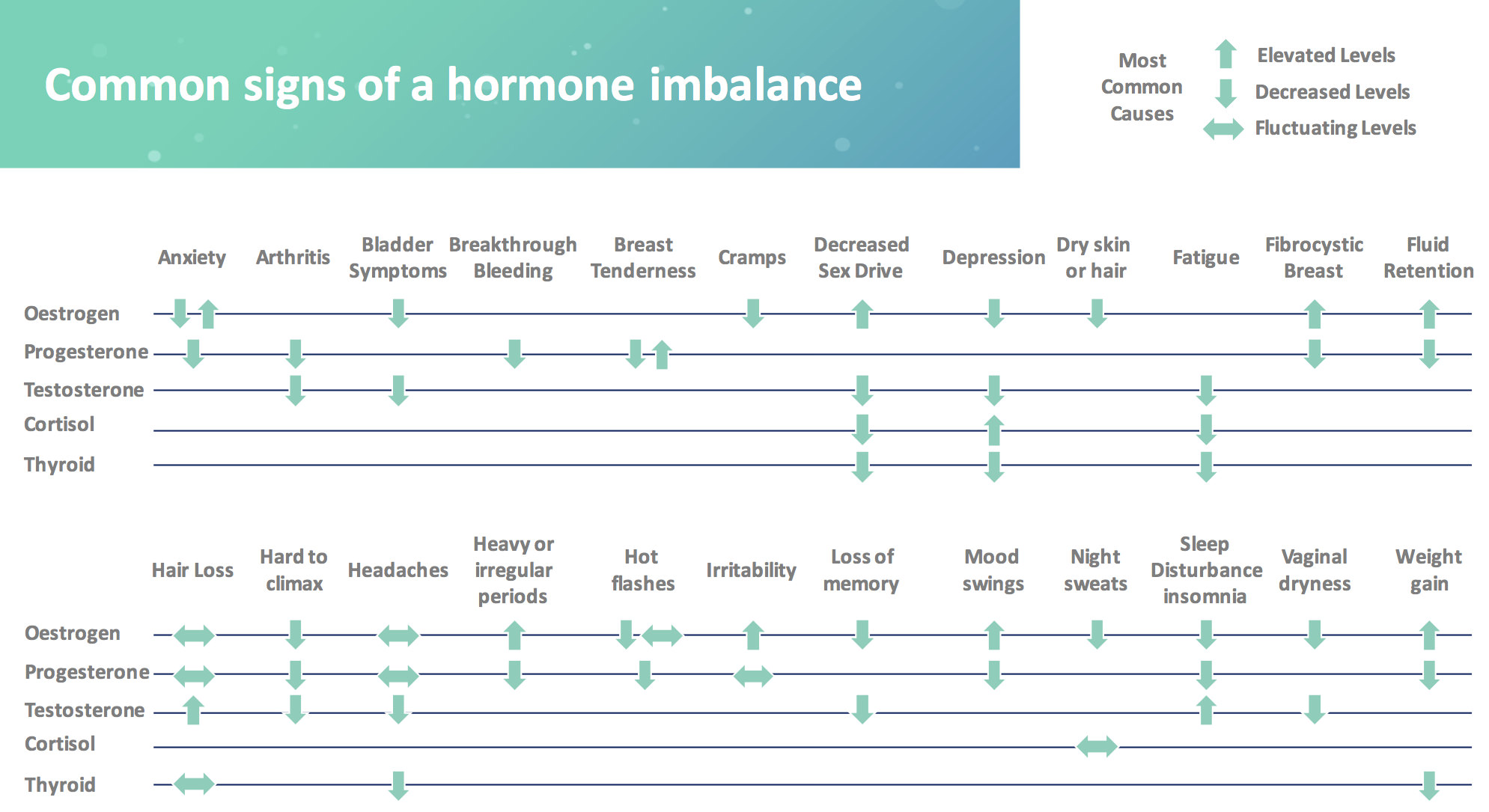What are hormones?
Hormones are chemical messengers in the body that are created in the endocrine glands. These messengers control most major bodily functions from basic needs like hunger to complex systems like reproduction and emotions.
The body produces many different hormones, but certain types have a bigger role to play in the body's health and well-being. Understanding these roles is important if you’re seeking to proactively manage your health.
A hormone imbalance can cause chronic health issues
When your hormones are in proper balance they help the body thrive, but small problems with hormones can cause serious and life-altering symptoms. Specifically, imbalances of sex hormones, thyroid hormones and adrenal hormones are common problems that can contribute to a host of chronic health issues. Unfortunately, conventional medicine often doesn’t understand the significant role hormone imbalances play in many health complaints.
How do I know if I have a hormone imbalance?
The following list of common complaints can often be helped or eliminated by improving hormone health. The challenge is often finding out the starting place of your hormone imbalance to ensure you are treating the root of the problem rather than just the symptoms. And that’s where hormone testing comes in.
- Fatigue
- Sleeping problems
- Weight loss difficulties
- Depression and anxiety
- Mood swings and emotional problems
- Dry skin and rashes
- Hair loss
- Allergies
- Body and joint pain
- Chronic headaches
- Infertility
- Menstrual irregularities
- Poor immune function
When assessing a hormone imbalance, it’s important to evaluate the endocrine system as a whole. This is because the endocrine system is complex and hormones and their actions are intricately linked – this means that hormone imbalances originating from different areas can cause the same symptom.
How do I know which hormones are out of balance?
If you have a sneaking suspicion you have a hormone balance, the chart below may help you understand where the issue is originating from.

How can I find out if I have a hormone imbalance?
The only way to confirm a hormone imbalance is to test your hormone levels. Both blood tests and saliva tests are proven techniques in assessing a hormone imbalance. i-screen uses blood tests to accurately determine sex hormone and thyroid hormone levels, but prefers saliva testing to assess cortisol levels. This is because cortisol levels follow a diurnal pattern which means tests must be conducted throughout the course of the day – this makes blood testing inconvenient.
Which test should I choose?
i-screen offers a number of hormone tests, and it can be confusing to decide which test is right for you.
- If you believe you have a sex hormone imbalance, then i-screen’s Female Hormone Check can verify this
- If you think your thyroid may be to blame, then a Thyroid Check or Advanced Thyroid Check is a good place to start
- Or if cortisol could be the problem, then i-screen’s Adrenal Fatigue Check can provide further insight
If your blood tests or saliva tests do reveal that you have a hormone imbalance, then our team of qualified doctors can recommend how you can take steps to improve your health and wellbeing.
If you need further guidance on which test is right for you, then contact us and one of our medical professionals will be in touch to work through your symptoms.
Further information
Check out some of our other blogs for further information about thyroid health and adrenal function:


